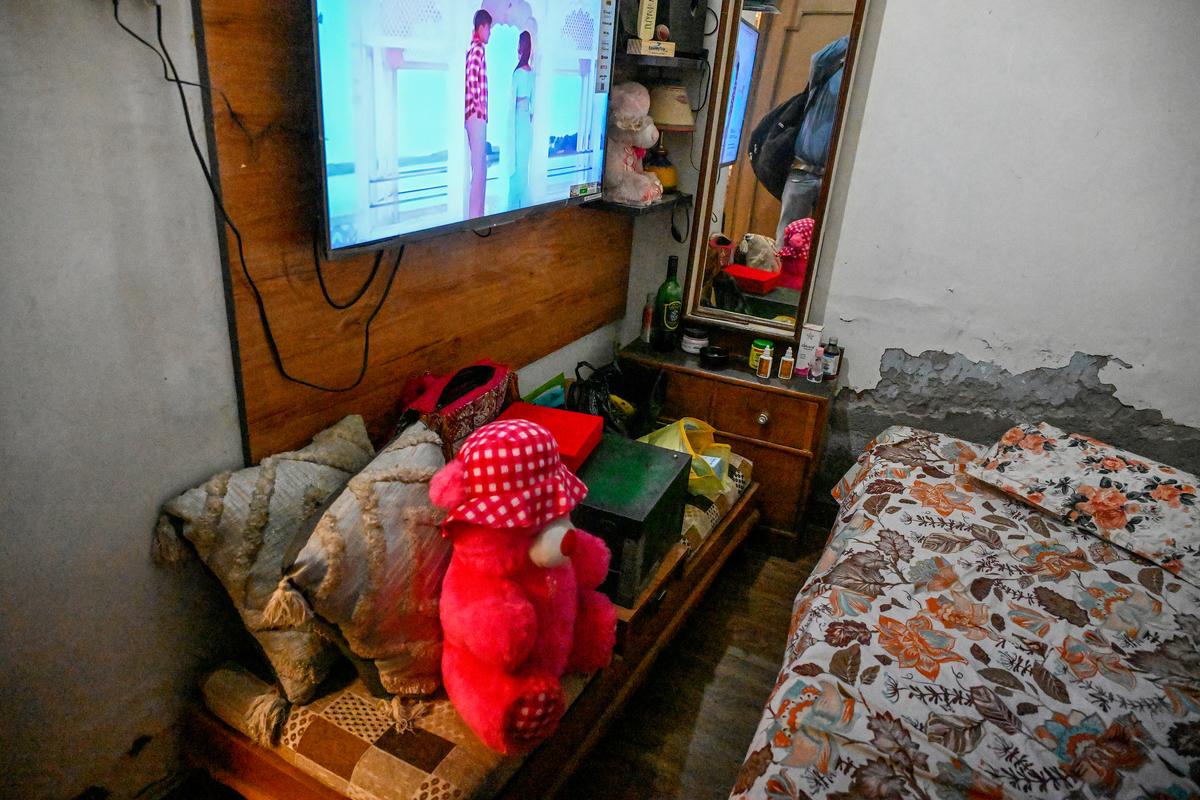
On her YouTube channel, ‘Travel With JO’, Jyoti Rani describes herself as a “Nomadic Leo Girl”, “Wanderer Haryanvi+Punjabi”, and “a modern girl with old fashioned ideas”. Nationally, she is now known as the woman who has been arrested on charges of espionage by the Hisar Police.
Jyoti, a 34-year-old vlogger, has more than 480 videos on her channel and 3.97 lakh subscribers. Shot in different parts of India, her videos show her interacting with locals and providing travel and food recommendations. Some of her videos have also been shot in other countries, including Indonesia, Bhutan, China, and Pakistan.
But in Haryana’s Hisar district, there is little proof of the adventurous life that Jyoti has led so far, or of the fame she enjoys online. Jyoti lives with her father Harish Kumar (58) and uncle Khushal Chand (65) in New Agarsen Extension area, a noisy neighbourhood inhabited mostly by retired government employees, businessmen, and ex-servicemen. Inside her cluttered and poorly lit bedroom in the 500 square feet house, paint is peeling off the walls. A framed poster of the popular American television sitcom, Friends, hangs from one wall. Another poster next to it reads, ‘Peene Ke Hai Chaar Din (There are only four days to drink)’. There are also garlanded photos of her grandparents.
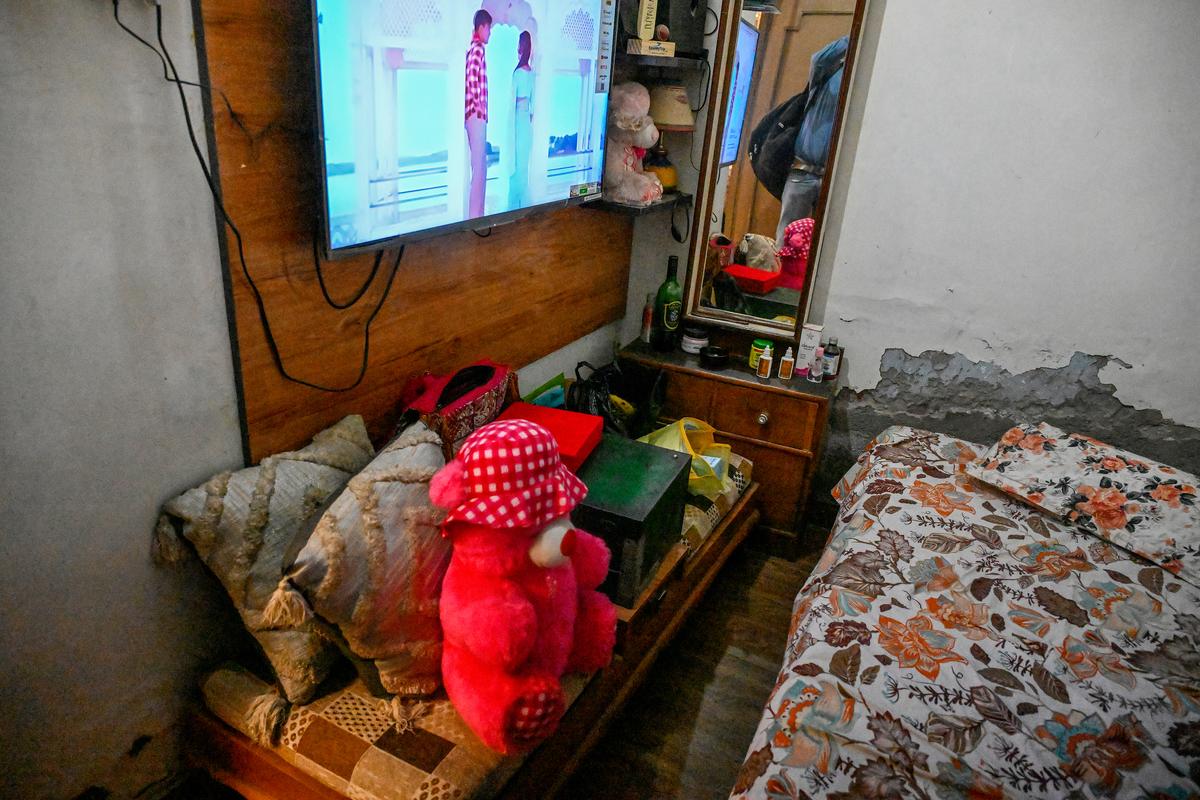
A view of Jyoti Rani’s room in her house in Hisar, Haryana.
| Photo Credit:
Sushil Kumar Verma
Neighbours say they barely know Jyoti. Savitri, who lives next door, says, “Jyoti mostly stayed outside this house. We saw her once in six months on the terrace. Since there were no women in the house, we didn’t interact with them.”
Virender Narwal, another neighbour, says he learned about Jyoti’s arrest through his relative who called him after watching the news on television. “The family mostly stays indoors,” he says.

On May 16, the Hisar Police registered a First Information Report (FIR) against Jyoti under Sections 3 and 5 (penalties for spying; and wrongful communication of information) of the Official Secrets Act, 1923, and Section 152 (criminalises actions that endanger the sovereignty, unity, and integrity of India) of the Bharatiya Nyaya Sanhita, 2024. Since then, the number of subscribers on Jyoti’s YouTube channel has gone up by 16,000.
Journey to Pakistan
It was Jyoti’s videos from Pakistan that brought her under the official radar, according to the police. Jyoti’s most popular video from the neighbouring country is titled ‘Indian girl in Pakistan – Wagah Border to Panja Sahib via Lahore’. Posted in April last year, it has 1.3 crore views and over 1.10 lakh ‘likes’. In another video, also posted last year, Jyoti is seen attending an Iftar party at the Pakistan High Commission in Delhi. It mentions that she was invited by the Embassy a year ago.

Jyoti’s alleged closeness to officials of the Pakistan High Commission, sponsored visits to the country, and her presence at social gatherings in Pakistan attended by that country’s elite all raised eyebrows in India. The Hisar Police believe that Jyoti was lured by the Pakistani intelligence with money, a luxurious lifestyle, and the prospect of establishing high-profile connections.
Hisar Superintendent of Police, Shashank Kumar Sawan, who is overseeing the investigation, says Jyoti was on the radar of the central agencies, including the National Investigation Agency (NIA), for a long time before her arrest.
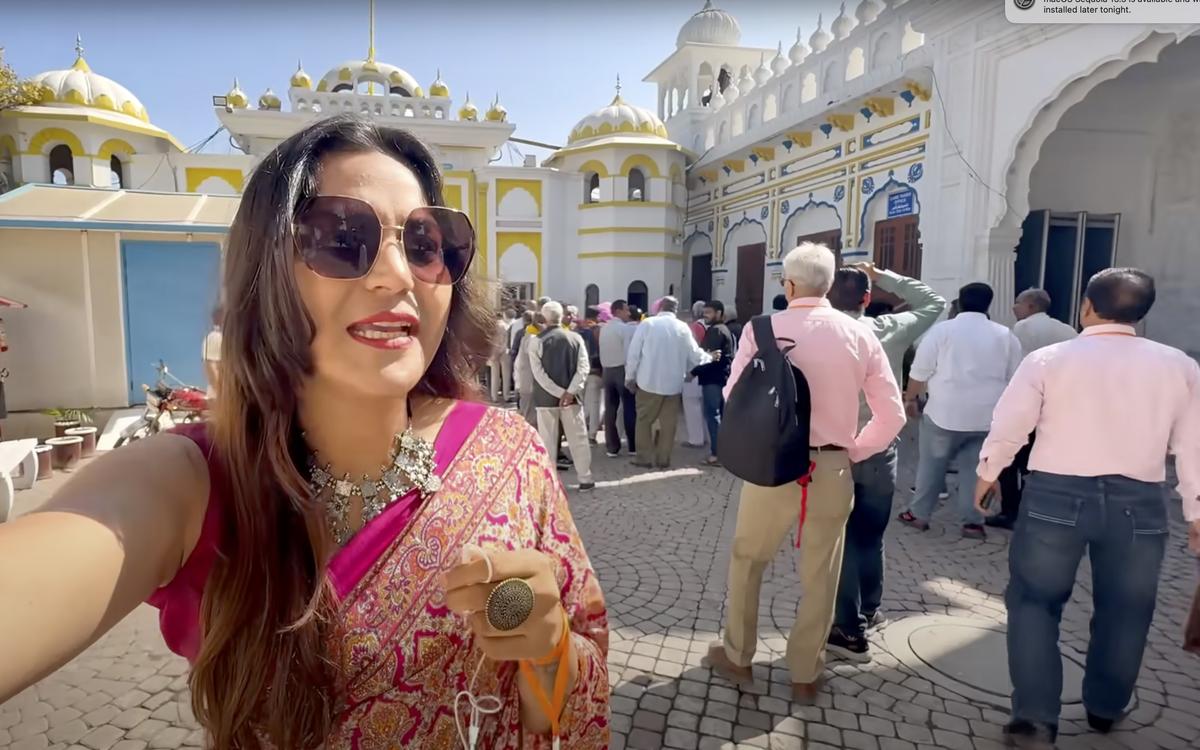
A video grab from a vlog posted on Jyoti’s YouTube channel, ‘Travel with JO’, shows her in Lahore, Pakistan. Photo: ‘Travel with Jo’ on YouTube
“Her travels led investigation agencies to suspect that she was being groomed as an asset by intelligence operatives in Pakistan,” he says. “We are investigating why she met them and what information was shared with them. The Pakistan intelligence officials were trying to reach out to other YouTube influencers through her.”
Shashank adds that Jyoti visited Pakistan as well as Pahalgam in Jammu and Kashmir before terrorists killed 26 tourists on April 22 at Baisaran valley. The attack led to an escalation of tensions between India and Pakistan. “We are trying to find out whether there are links between her visits and the attack,” he says.
However, the police say since Jyoti did not have any direct access to sensitive information related to defence and the military, there is no evidence yet to suggest that she shared secret details with Pakistani intelligence officials. They also admit that there is no evidence of her being in contact with any terrorist organisation.

The police’s suspicions about Jyoti also seem to stem from Hisar’s strategic location — the district, situated around 160 kilometres west of Delhi, has a military cantonment and an airport. Significantly, the Sirsa Air Force Base lies one and a half hours away from Hisar by road.
“So any small piece of information shared by Jyoti with the Pakistani officials could be of significance to them,” says Shashank. The police expect the forensic examination report of her mobile phones and laptops to throw more light on the “nature of the information shared by her with Pakistani intelligence officials”.
The reel and the real
During Partition, Jyoti’s family came to India from Multan in Pakistan and settled in Faridkot in Punjab, says Harish. Later, they moved to Hisar. Harish divorced his wife when Jyoti was a teenager. Khushal Chand, who retired as a foreman from the Haryana Electricity Board, also divorced his wife 10 years ago and moved in with Harish and Jyoti.
Jyoti graduated with a degree in the arts from Hisar’s Fateh Chand College for Women. Harish, who polishes furniture for a living, says though a good student, Jyoti was reluctant to pursue higher education. She worked as a receptionist at a coaching institute and a teacher at a primary school in the neighbourhood before moving to Delhi in search of better opportunities. Harish, a school dropout, claims that he knew nothing about his daughter’s job in Delhi apart from the fact she earned ₹15,000-16,000 a month. He says he mostly stays at home due to his failing health and survives on his brother’s pension of ₹20,000.
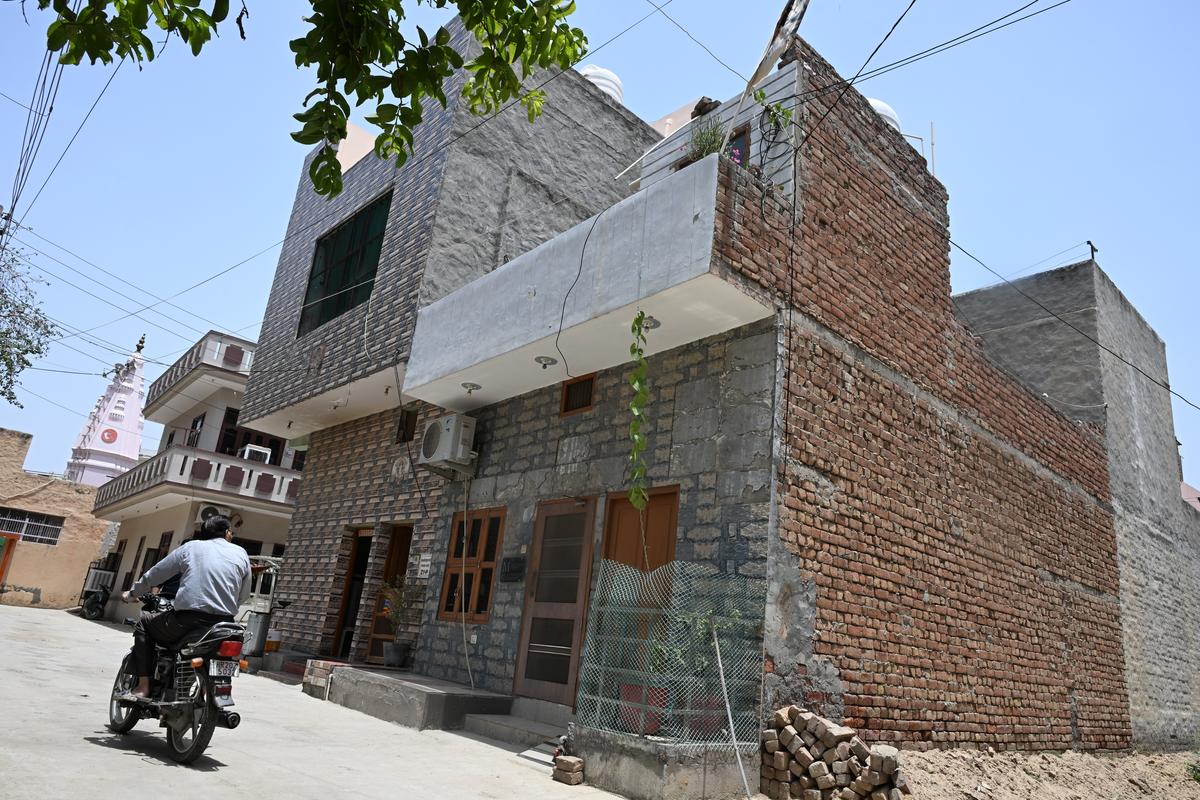
A view of Jyoti Rani’s house in New Agarsen Extension area, a noisy neighbourhood in Hisar.
| Photo Credit:
Sushil Kumar Verma
When Jyoti lost her job during the COVID-19 pandemic-induced lockdown, she returned to her father and uncle. She told her father that she wanted to make ‘reels’ and asked him to buy her a laptop. He bought her one for ₹1 lakh, he says.
Harish says whenever Jyoti was at home, she would be busy editing ‘reels’. “But she hardly stayed with us in Hisar. She would tell me that she was going to Delhi and would return after a few days or even weeks. None of her friends came home. I had no idea that she had been to Pakistan or any other country for that matter,” he adds.
Harish also claims he had no idea what she was posting online. “I have a basic phone. I didn’t know what she was doing until the police reached our doorstep on May 15,” he says.
That morning, half a dozen police personnel, including two women, barged into the house and headed straight to Jyoti’s room. Harish watched in shock as they left with his daughter, her laptop, and their mobile phones half an hour later.
Jyoti returned home late that evening, but did not say a word. “She ate, brushed her teeth, and went to sleep. The next morning, she went to the police station on her scooter. Then the police returned in the early hours of Saturday (May 17) and took away her passport,” he says in a seemingly well-rehearsed manner, as he has recalled the events of that day several times to the TV reporters who have been thronging his house.
Harish also complains about the unwanted attention. He says, “These journalists have made me ill. I don’t get time to eat. I can’t sleep. I have a fever too.” A bottle of syrup to treat indigestion and gastric troubles lies at his bedside.
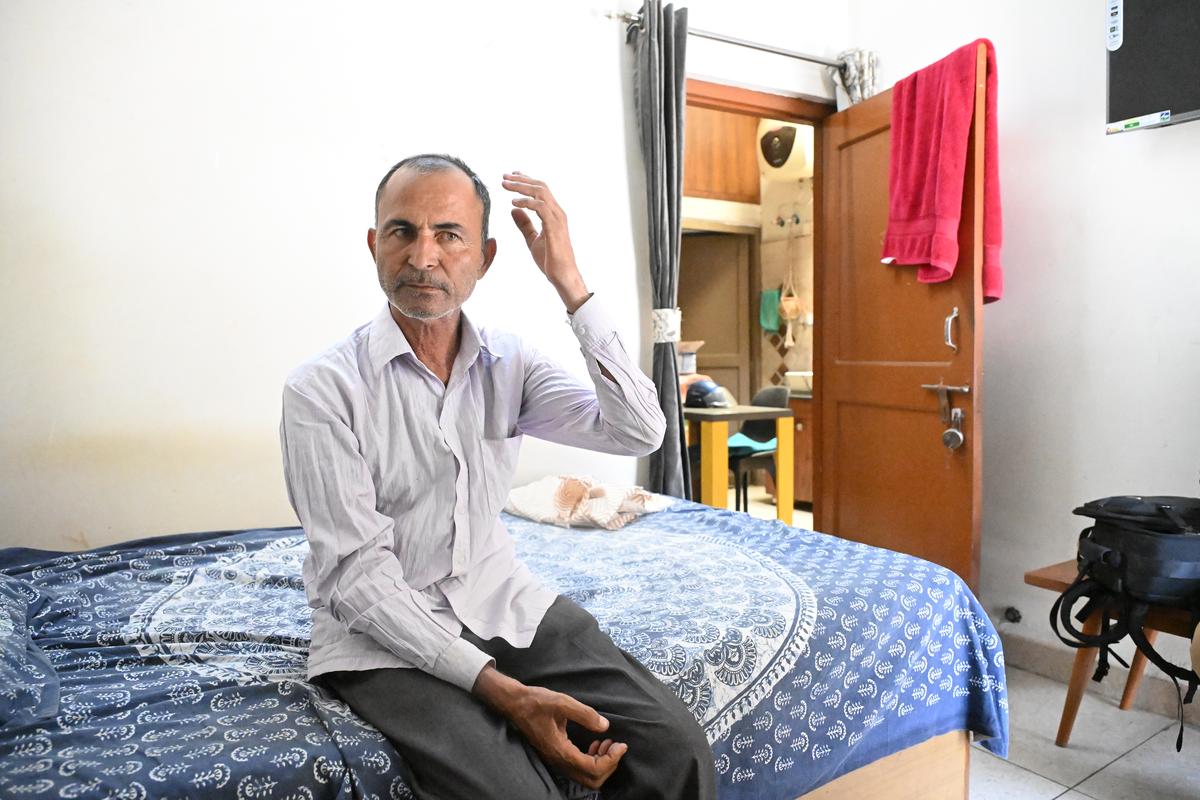
Jyoti Rani’s father, Harish Kumar, says he had no idea what his daughter was posting online.
| Photo Credit:
Sushil Kumar Verma
Joining the dots
The FIR registered on May 16 states that Jyoti met Ehsan-Ur-Rahim alias Danish, an official at the Pakistan High Commission, in 2023 when she went to the Commission seeking a visa. The two of them stayed in touch over the phone. Jyoti later visited Pakistan twice. There she met Danish’s acquaintance Ali Ahwan, who arranged for her stay and travel in the country. Ali introduced her to two men — Shakir and Rana Shabaz. Jyoti stored Shakir’s mobile number under the name Jat Randhawa. “She stayed in touch with these Pakistani nationals over WhatsApp, Snapchat, and Telegram and shared anti-national details with them. She also met Danish several times. She was found in touch with Pakistan intelligence operatives,” reads the FIR.
The police have also detained for questioning Harkirat Singh, a resident of Ajrana village in Haryana’s Kurukshetra district, who works at a gurdwara. They suspect that he introduced Jyoti to Danish. The Pakistani official has since been declared persona non-grata by the Indian External Affairs Ministry and told to leave the country.
Harish has not met Jyoti since her arrest and refuses to believe what the police and media are saying. “I met her briefly when I went to hand over a photocopy of her Aadhaar card after her arrest. She said she was fine and would return home soon,” he says. He wants to hire a lawyer but has no idea how to go about it. “How much do they charge? ₹20,000 or ₹50,000?” Lawyers say they have not taken up her case in the fear of being labelled ‘anti-national’ for representing a “spy”. A Hisar court has appointed a government lawyer to represent Jyoti. On May 22, the court extended Jyoti’s police remand by four days.
Casting the net wider
With the police widening their investigation, other social media content creators and travel vloggers have come under the scanner.
Following a review meeting with the Chief Minister Nayab Saini on May 20, Haryana Home Secretary Sumita Mishra said, “There was a discussion regarding Pakistan-backed operatives in the meeting. This action is not over and will continue. More YouTube channels in Haryana are being probed. We have special cells to monitor social media. Action is being taken against sleeper cells that have links with Pakistan.”
Besides Jyoti, the Haryana Police have arrested two youth from Nuh and one each from Kaithal and Panipat on charges of spying and endangering the sovereignty, integrity and unity of the country.
Odisha-based YouTuber Priyanka Senapati, also known for her travel videos, is being investigated in the case. The Puri Police in Odisha say they are examining the financial transactions “of all family members of the woman who came in contact with Malhotra (Jyoti Rani)”.
Though the police are yet to find any evidence to suggest that Jyoti has access to any sensitive information or terror links, Shashank says social media influencers could play a pivotal role in creating a narrative that favours Pakistan and counters the Indian government’s stand.
One of Jyoti’s live videos, ‘My views on Pahalgam Kashmir’, streamed three weeks ago, garnered around 80,000 views. While calling for Hindu-Muslim unity and criticising terrorism, Jyoti stopped short of blaming Pakistan for the attack. “We should not blame any country or Kashmiris for this… terrorist organisations should be condemned… not any particular religion and any particular country… if anyone has supported those terrorists, we are responsible and our government is responsible because there was a security lapse,” she said in the live video.
Navneet Rajan Wasan, former Special Director, NIA, says public opinion holds significance when two nations are “at war” and that the “subtle” messaging by social media influencers can help create a narrative in favour of or against governments. “Spreading a narrative which is against the government’s official position could harm our interests,” he says.
Navneet has decades of experience in investigating terror cases. He says social media influencers, like “sleeper cells”, may not even be aware that they are being exploited by their handlers to propagate a narrative against their own country.
Experts say social media content creators could also be helping handlers by vlogging near key infrastructure, such as metro stations and military locations; setting up honey traps or befriending people in sensitive jobs; and posting geo-tagged pictures.
Haryana-based freelance journalist Mandeep Punia, who was arrested by the Delhi Police during the farmers’ agitation in 2020-21, says Jyoti is being targeted without any evidence. On a post on X, he wrote: “People nowadays insist on creating narratives instead of presenting facts, so even progressive accounts are getting caught in this. This woman will be acquitted in the end, but she would have suffered a lot by then. Jyoti Malhotra is one name being highlighted a lot, but here in Haryana, Punjab, people are being arrested in every district by calling them spies. Don’t get caught in the trap of creating narratives. Stick to the facts. Many people from Haryana, Punjab used to go to Pakistan for a visit. There was peace between the two countries then. Now the same people are being made scapegoats.”
ashok.kumar@thehindu.co.in
Published – May 24, 2025 03:15 am IST





